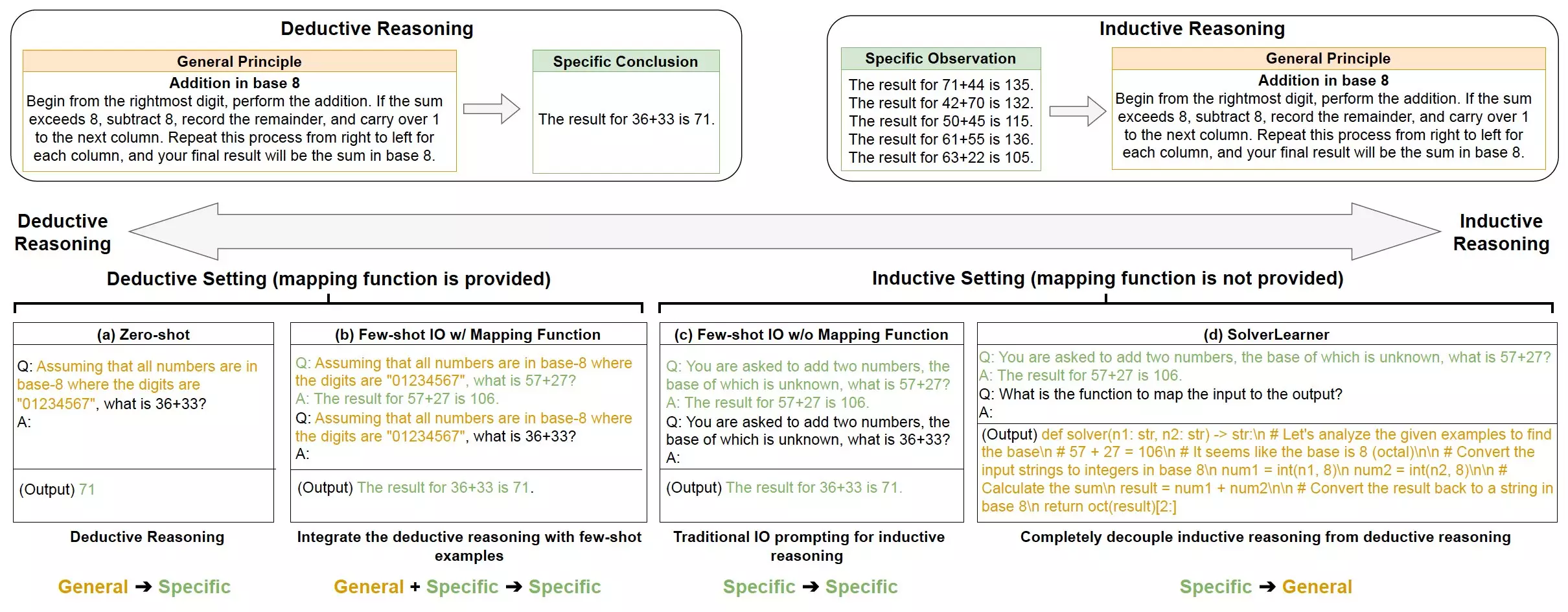Reasoning is a fundamental process that allows human beings to process information and draw conclusions. There are two main types of reasoning: deductive reasoning and inductive reasoning. Deductive reasoning involves starting from a general rule or premise and using it to draw conclusions about specific cases. On the other hand, inductive reasoning involves generalizing based on specific observations. While past research has extensively studied human reasoning, the exploration of how artificial intelligence systems employ these reasoning strategies has been limited.
A recent study conducted by a research team at Amazon and the University of California Los Angeles delved into the reasoning abilities of large language models (LLMs), which are AI systems capable of processing and generating human language. The researchers found that LLMs exhibit strong inductive reasoning capabilities but often lack deductive reasoning skills. This highlights a gap in the reasoning abilities of AI systems and raises questions about their performance in tasks that require deductive reasoning.
To better understand the reasoning capabilities of LLMs, the researchers introduced a new model called SolverLearner. This model separates the process of learning rules from that of applying them to specific cases, allowing for a more thorough examination of inductive and deductive reasoning. By training LLMs to learn functions that map input data to outputs, the researchers were able to assess the models’ ability to learn general rules based on specific examples.
The study revealed that LLMs possess stronger inductive reasoning capabilities compared to deductive reasoning. Particularly, LLMs excelled in tasks involving “counterfactual” scenarios that deviate from the norm. However, their deductive reasoning abilities were lacking, especially in scenarios based on hypothetical assumptions. This disparity between inductive and deductive reasoning in LLMs suggests a need for further research to enhance their overall reasoning abilities.
The findings of this study carry implications for the development of AI systems, particularly in the design of agent systems like chatbots. Leveraging the strong inductive reasoning capabilities of LLMs could prove beneficial in enhancing their performance in specific tasks. Additionally, further research in this area could explore how the compression of information in LLMs relates to their inductive reasoning abilities, potentially leading to advancements in their overall reasoning processes.
The study sheds light on the importance of reasoning in artificial intelligence systems and highlights the strengths and weaknesses of LLM reasoning. By identifying gaps in deductive reasoning and understanding the strong inductive capabilities of LLMs, researchers and developers can work towards improving the overall reasoning abilities of AI systems.


Leave a Reply